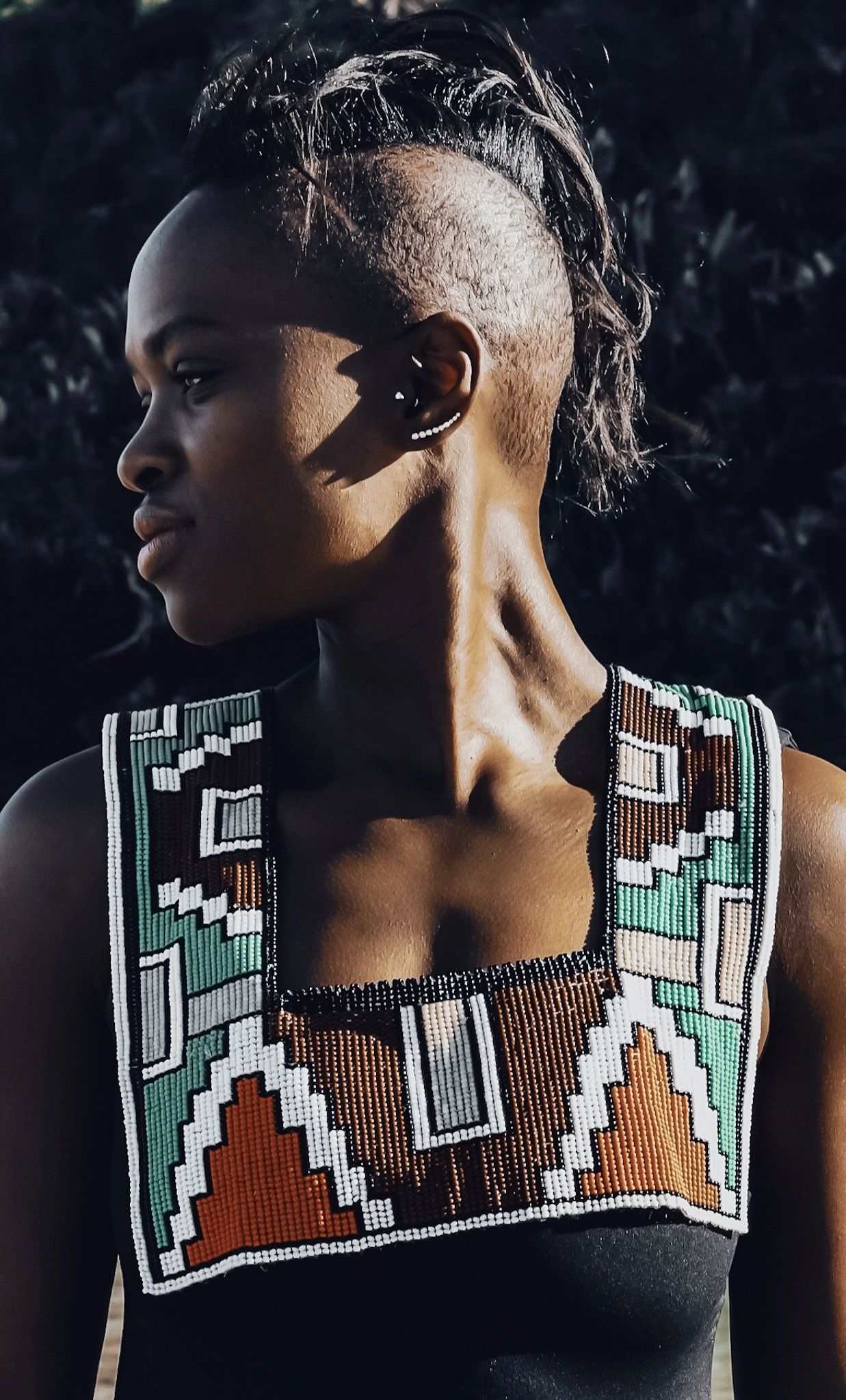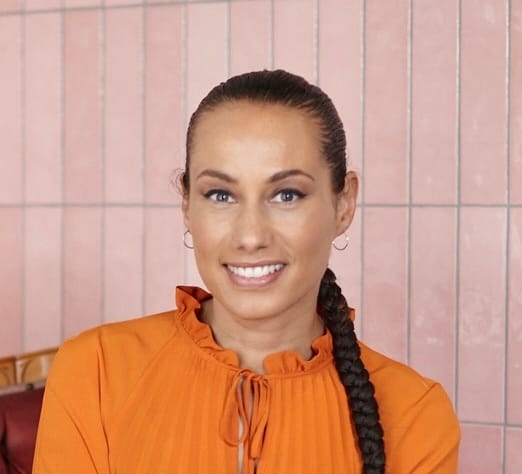
📸 Arno Smit, Unsplash
Heeey!
How’s it going pod friend? Happy Spring/Autumm!
It’s been a while, I know, but I hope a lot of positive things have been happening to you and for you. The world is still in a terrible state, so that hasn’t changed. There has however been a slight change at Shades and Layers. You’ll notice that we have gone back to a fortnightly episode publishing schedule. And soon we will look at the numbers to see what your preferences are, versus what you tell me in the DM’s 😆.
Another noticeable change for us all is the season. New England is finally welcoming the Spring - although some argue that it’s too early - and I’m already planning how I’ll be spending my summer. The lead picture of this edition serves as inspiration.
This edition highlights two recent episode on the podcast feed and reflects on the high stakes of South Africa’s upcoming elections in May; 30 years after the late Nelson Mandela took an oath of office as South Africa’s first democratically elected Black president.
Before we get into all of it, please do a girl a favor and spread the word about this fabulous newsletter. And if this edition was shared with you, hit the Subscribe button below and never miss an edition.
LATEST EPISODES

Fikile ‘Fix’ Moeti, Founder of “Fix Scholarship” and co-founder of “African Affirmations”
HEALING AND REINVENTION
Fikile “Fix” Moeti was one of the first MTV presenters when the channel launched its local version in South Africa in the late 2000. She also became a member of the new wave of daytime women DJ’s on 5fm. While she was living the life of an ‘It Girl’ in the bustling streets of Johannesburg, she was tending to the whispers of a call to healing and doing more with the platform she’d been given. Like all of us, the year that wasn’t, 2020 brought fundamental shifts to her life. She had a child, got divorced and moved countries - in that order. Find out about her journey to Social Entrepreneurship, how she evolved into a ‘Light Worker’, and how blending all her talents and interests led to a more creative life.

Melaney Oldenhof, Founder and Creative Director of WhatWeCherish
CURATED AFRICAN LUXURY
A conversation with the founder of WhatWeCherish, Melaney Oldenhof, gives insights into the possibilities for an African luxury marketplace. After two decades working as a fashion stylist in New York, Melaney moved to Johannesburg to start a family with her South African partner. What struck her the most about her new city were the seemingly ubiquitous beautiful handmade design goods that she spotted while going around and getting to know the place. She immediately set about contacting the mostly women founded makers and business owners of some of these products, and set about creating a collective that would share not only the products, but the stories behind the objects.
30 YEARS OF DEMOCRACY
At the dawn of the new South Africa, it was appropriate to highlight the stories of the country’s majority after 48 years of Apartheid. One of the definitive theatre productions that captures the lived experience of the final years of apartheid, and aptly captures how hard won South Africa’s hopeful spirit of the time is a 1992 film called Sarafina (originally a Toni-nominated stage production) starring Whoopi Goldberg, South Africa’s own global music icon, Miriam Makeba, and rising star (at the time), Leleti Khumalo. The title for this edition is derived from the lyrics of a song called “Coming Tomorrow” from the stage production of Sarafina.
Sarafina’s achievements on the global stage showed what possibilities lay ahead for all of us in all spheres of life. Sarafina also serves as a history lesson as to how hard worn South Africa’s freedom has been. Today, South Africa celebrates 30 years of many great achievements kickstarted during the Sarafina era. At the same time, we are lamenting our disappointments in the broken promises of the Rainbow Nation project.
In the beginning …
All of us who were fortunate enough to cast our first ever votes during South Africa’s first ever democratic elections in 1994 are the embodiment of “born at the right time”. We had lived under the terror of P.W. Botha, and his successor FW De Klerk, and participated in the birth of the Rainbow Nation during the euphoric years of Nelson Mandela’s five year presidential term. Writing the last bit of the previous sentence imbues my entire body with the warmth of the golden light that’s typical of the start of Autumn in the Highveld.
Moving right along ….
Our generation has an intimate knowledge of the extreme ends of our political system, we understood the assignment when freedom arrived, and we went to work. The Truth and Reconciliation Commission kickstarted our (still incomplete) healing process, our new constitution gave us hope, and kwaito music gave us the perfect soundtrack for the many firsts we would achieve, and get global recognition for. For the first time ever, we as a people felt heard, felt seen and we had a deep sense of, finally!, belonging.
Most of our generation has gone on to achieve amazing things locally and internationally. Opportunities that never existed suddenly opened. I even remember sitting in a majority woman investment workshop led by social entrepreneur, Wendy Luhabe during the late 90s. Say what?! Yep, opportunities were abound. The possibilities were endless. What could go wrong?
The Wonder Years ….
Life improved for many of the Black majority, thanks to infrastructure investments, and the BEE policies (Affirmative Action) that were implemented. Some of us became the so-called “Black Diamonds” (always hated that term). Some of us started companies, we worked at companies we once saw in the newspapers, schools and universities started looking like laboratories of our new social experiment, we hosted international VIP guests and dignitaries, we traveled abroad as welcome tourists, and most importantly, we were Africa’s hope. The last African nation to win independence. We already had good infrastructure, all we had to do was expand and make it more inclusive.
Even with all these positives, however, there are a countless number of Black South Africans who remain excluded from economic participation. South Africa still has one of the highest unemployment rates in the world at 32%. The country’s infrastructure looks dangerously close to collapse, and the lived experience of challenges like load shedding (on reprieve for now) and the ongoing water crisis are testing even the most loyal and patriotic.
One thing to be said for South Africans though, is that even when everything seems to be working against us, we always find or create a sliver of hope. We are good at turning k*k into a compost bed for a garden. We’ve gifted the world ‘Amapiano’ music and its accompanying dance trends. Love or hate it, the song Jerusalema got everyone in all four corners of the world through the 2020 lockdowns. There is no doubt that great things and innovations will emerge from the challenges that our nation is facing.
And Now …
The upcoming elections are a high stakes event given the infrastructure challenges, unemployment and various other social problems such as crime and the constant anti-immigration waves that the country has been facing. You could call it a moment of reckoning for Nelson Mandela’s African National Congress (who have had a majority vote, albeit decreasing, in all elections since 1994) , as South Africa’s increasingly disgruntled population calls for change. Political pundits are not able to dismiss the ANC and President Cyril Ramaphosa outright (messy as the party is right now), nor can they predict accurately which of the opposition parties will emerge as the leader of the pack. The political landscape is in flux and experts are predicting that the outcome of this momentous election will lead to how it all started: with a government of national unity (GNU).
Whichever way the dice roll, the most important element for South Africa’s future success is nothing less than political will. Let’s look at the music industry as an example. Would the current global craze over Amapiano music exist without the political will to create policies for promoting and retaining South Africa’s cultural identity? Remember South African Music Day? Remember the 20% SA music quota imposed on commercial radio stations when the airwaves were freed? Nothing other than a combination of political will and artist activism has made it possible for our musicians to create Yanos today and other significant cultural exports like art, film and fashion. This Mail & Guardian article from 2003 aptly reflects what was going on at the time. It’s still not perfect today and there are many forces that still resist having more local content on the airwaves, however legislation is a tried and tested way of shaping lives. There definitely was not as much pride in local culture as what exists today when I was growing up.
The question for us to answer with our votes this year is this: whom do we believe has the political balls to turn the tide?
In Conclusion….
It is more important than ever to vote in the May 2024 elections. Even those of us who live abroad have the opportunity to vote for the change that we want. Depending on where in the world you find yourself, it will be either on the 17th or the 18th of May , and May 29th is the official Election Day in Mzansi. Get election details here.
May we use our democratic rights wisely.
Viva Azania 🇿🇦, Viva!
WHAT I’M READING AND LISTENING TO
I’ve just finished Arlan Hamilton’s Your First Million which is also the name of her popular podcast, and a continuation of her work of creating millionaires by investing in underestimated founders. It’s an easy read and strikes the right balance between ‘you’ve got this’ and ‘here’s how to do it’. Worth the read because of how it centers “paying it forward”.
To balance things out, I’ve been delving into short stories. Came across Darrell Cuthbert’s The Verbal Squatter, with stories that equally infuriate and render one homesick. Looks like it’s a self-published project. Another short story collection that I highly recommend is Innards by Magogodi oaMphela Makhene. It’s set in apartheid-era Soweto, which of course is my home, and her characters feel familiar; you will see yourself and your relatives in the stories.It’s a very poignant account of how we survived apartheid’s brutality.
A few months ago, I got to watch the Broadway musical Hamilton during a visit to New York and loved it. After a little consideration I finally allowed my 10-year-old to see it on Disney ; he’s studying American History at the moment. So the soundtrack is on heavy rotation, and it makes for good company on roadtrips as we explore New England. Let’s see how that shapes my Spotify Wrapped later this year.
Speaking of soundtracks, I’m loving the Apple Music playlists marking the 30th Anniversary of South Africa’s democracy. Newzroom Africa recently had an interview with three of the public figures who were invited to create a playlist that captures the spirit of the past three decades. Goodness me! It must have been tough deciding what to include, and what to leave out. There’s so much music to select from; a sign of how far we’ve come….
That’s it from me pod friends! Let me know which playlists you’re loving and what books you’re reading. Until next time, please do take good care!
Cheers,
Kutloano
(your host with the most)
